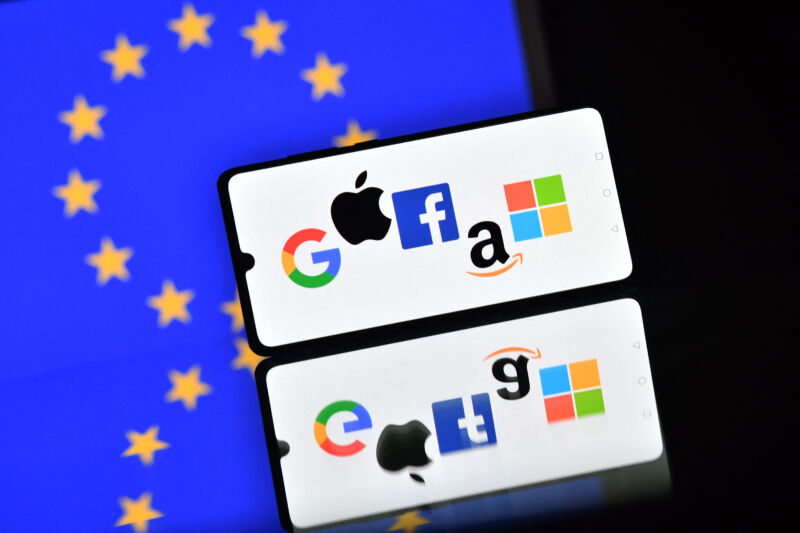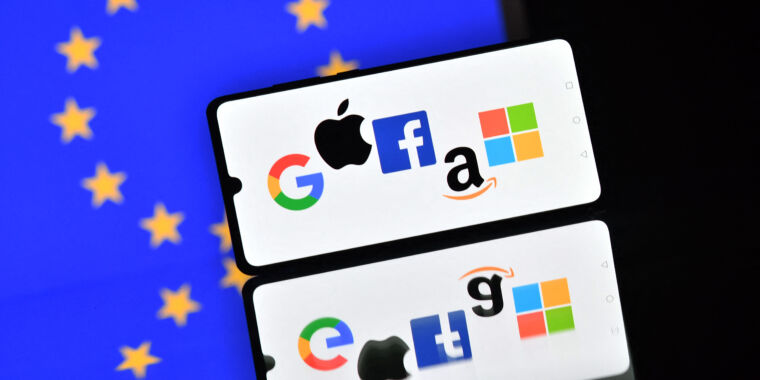
Justin Tallis | Getty Images
The EU is about to unveil a groundbreaking law Friday that will force Big Tech to monitor their platforms more aggressively for illegal content, marking the latest move by regulators to stem the power of major tech groups.
The controversial practice of targeting users online based on their religion, gender or sexual preferences is banned under the Digital Services Act, according to four people with knowledge of the discussions.
The DSA is a legislative package that sets the rules for the first time on how Big Tech should keep users safe online. It comes a month after the EU passed the Digital Markets Act as it continues its largest overhaul of the laws governing the world’s largest tech companies in more than two decades.
Under the DSA, manipulative techniques that lead to people inadvertently clicking on content on the Internet, called dark patterns, will also be banned.
Margrethe Vestager, the EU’s executive vice president in charge of digital policy, said Friday she hopes for a breakthrough. She added that the DSA would allow regulators to act so that users can “be safe online, buy products and express themselves”.
As part of the deal, which will be agreed in Brussels between member states, the European Commission and the European Parliament, children will be subject to new safeguards, meaning online platforms such as YouTube or TikTok will update their terms and conditions in a way that a minor can. to understand. Companies like Facebook mother Meta will not be able to target minors with ads under the new rules.
“The DSA shows that online platforms cannot do what they want and they cannot unilaterally control what users can or cannot see,” said an EU official who worked on the legislation.
Regulators will also include an emergency mechanism to force platforms to disclose steps they are taking to address misinformation or propaganda in light of COVID-19 and the war in Ukraine.
Mid-sized platforms are likely to be given a grace period until they can fully comply with the new rules, while large companies like Google and Amazon will have to abide once the rules are in place.
Big Tech will fund the surveillance costs to ensure they meet their obligations to monitor the internet, two people with direct knowledge of the matter said.
Major platforms, defined as having at least 45 million users on the block, will pay an annual bill of between $20 million and $30 million, the people added. Companies that violate the rules face fines of up to 6 percent of global revenue.
Search engines will also be subject to the new rulebook, meaning companies like Google will need to assess and mitigate risks when it comes to users spreading misinformation on their search platform.
Thierry Breton, the EU’s internal market commissioner, has warned that Big Tech has become “too big to care”.
While regulators expect a deal to close on Friday, some warned the timing could shift and the final deal could change at the last minute.
Tensions remain within the European Parliament between greens who want more privacy protections and liberals who champion business-friendly regulations.
But Christel Schaldemose, a MEP who led the debate on the DSA, told the Financial Times there was “now momentum” and “[this is] the best time for a deal.”
“We need better rules and better protection for users. The DSA will make the platforms responsible for their algorithms, they have to do risk assessment and mitigation to protect us,” she said.
© 2022 The Financial Times Ltd. All rights reserved. May not be redistributed, copied or modified in any way.

